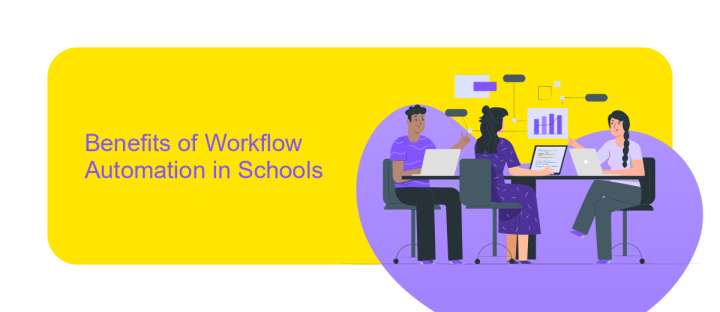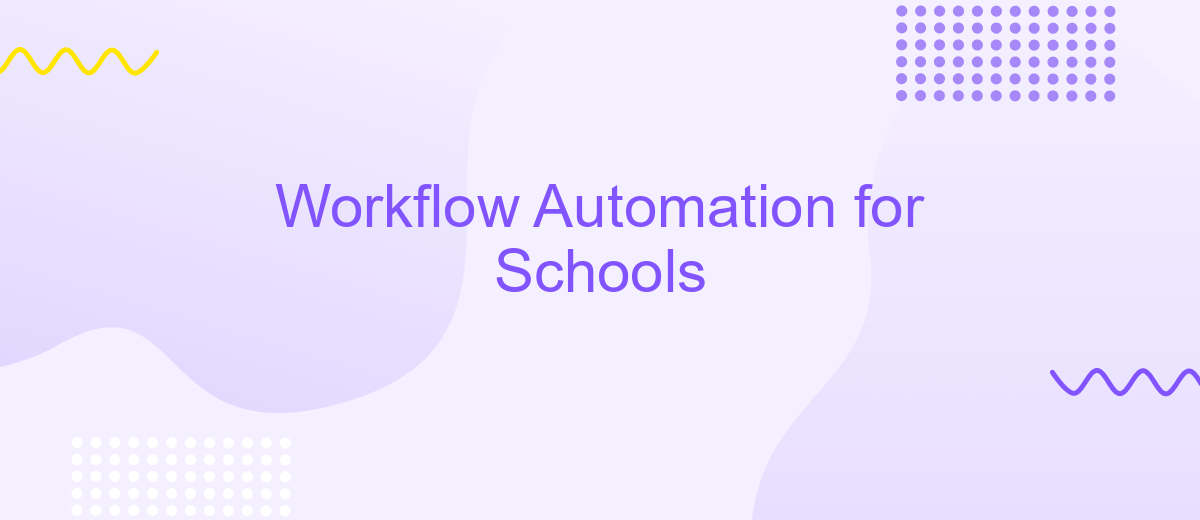Workflow Automation for Schools
In today's fast-paced educational environment, workflow automation for schools is becoming essential. By streamlining administrative tasks, enhancing communication, and optimizing resource management, automation tools can significantly improve efficiency and reduce the workload on educators and staff. This article explores the benefits, implementation strategies, and real-world applications of workflow automation in educational institutions.
Introduction
Workflow automation in schools is revolutionizing the way educational institutions manage their administrative and academic tasks. By leveraging technology, schools can streamline processes, reduce manual labor, and enhance overall efficiency. This not only saves time but also allows educators to focus more on teaching and less on administrative duties.
- Automated attendance tracking
- Efficient scheduling and timetable management
- Seamless communication between teachers, students, and parents
- Enhanced data management and reporting
- Integration of various educational tools and platforms
One of the key components in achieving effective workflow automation is the integration of various systems and tools. Services like ApiX-Drive facilitate these integrations by allowing schools to connect different applications seamlessly. This ensures that data flows smoothly between systems, reducing errors and improving the overall functionality of the school's administrative processes. By embracing workflow automation, schools can create a more organized and productive environment for both staff and students.
Benefits of Workflow Automation in Schools

Workflow automation in schools significantly enhances efficiency by streamlining administrative tasks, reducing manual errors, and saving valuable time for educators and staff. By automating processes such as attendance tracking, grading, and communication, schools can focus more on student development and less on paperwork. This not only improves overall productivity but also fosters a more organized and responsive educational environment.
Additionally, integrating various systems and tools through services like ApiX-Drive allows schools to seamlessly connect different platforms, ensuring data consistency and real-time updates. For example, synchronizing student information systems with learning management systems can simplify data management and improve accessibility for teachers and administrators. Overall, workflow automation and integration services empower schools to operate more efficiently, ultimately enhancing the educational experience for both students and staff.
Types of Workflow Automation

Workflow automation in schools can significantly enhance efficiency by streamlining various administrative and academic processes. There are several types of workflow automation that can be implemented to achieve this goal.
- Attendance Tracking: Automated systems can record and manage student attendance, reducing manual errors and saving time for teachers.
- Grade Management: Automation can simplify the process of grading and reporting, allowing for faster and more accurate results.
- Communication Automation: Tools like ApiX-Drive can integrate various communication platforms, ensuring timely updates and notifications to students, parents, and staff.
- Enrollment Processes: Automating enrollment can streamline the admission process, from application submission to final acceptance.
- Resource Allocation: Automated systems can efficiently manage and allocate school resources such as classrooms, equipment, and teaching materials.
By leveraging these types of workflow automation, schools can enhance productivity, reduce administrative burdens, and create a more efficient educational environment. Integrating services like ApiX-Drive can further optimize these processes through seamless connectivity and data synchronization.
Implementation and Management

Implementing workflow automation in schools requires a strategic approach to ensure seamless integration and effective management. The first step is to identify the key processes that can benefit from automation, such as attendance tracking, assignment submissions, and communication with parents.
Once the processes are identified, the next step is to select the appropriate tools and platforms that support these automation needs. ApiX-Drive is an excellent choice for integrating various applications and services, allowing schools to streamline their workflow without extensive technical expertise.
- Identify key processes for automation
- Select suitable tools and platforms like ApiX-Drive
- Configure and test integrations
- Train staff and monitor performance
Effective management of automated workflows involves continuous monitoring and optimization. Schools should regularly review the performance of their automated systems, gather feedback from staff and students, and make necessary adjustments to improve efficiency and effectiveness. This proactive approach ensures that the automation solutions remain aligned with the school's evolving needs.
Conclusion
Implementing workflow automation in schools can significantly enhance operational efficiency, reduce administrative burdens, and improve overall educational outcomes. By streamlining processes such as attendance tracking, grading, and communication, educators can focus more on teaching and less on paperwork. Moreover, automated workflows ensure consistency and accuracy, minimizing human errors and ensuring that all tasks are completed on time.
With the integration capabilities of platforms like ApiX-Drive, schools can seamlessly connect various applications and services, further optimizing their workflows. This not only simplifies data management but also enables real-time updates and better decision-making. In conclusion, embracing workflow automation is a strategic move for schools aiming to modernize their operations and provide a better learning environment for students and staff alike.
FAQ
What is workflow automation for schools?
How can workflow automation benefit schools?
What types of tasks can be automated in a school setting?
How can schools implement workflow automation?
Is workflow automation difficult to set up?
Time is the most valuable resource for business today. Almost half of it is wasted on routine tasks. Your employees are constantly forced to perform monotonous tasks that are difficult to classify as important and specialized. You can leave everything as it is by hiring additional employees, or you can automate most of the business processes using the ApiX-Drive online connector to get rid of unnecessary time and money expenses once and for all. The choice is yours!

